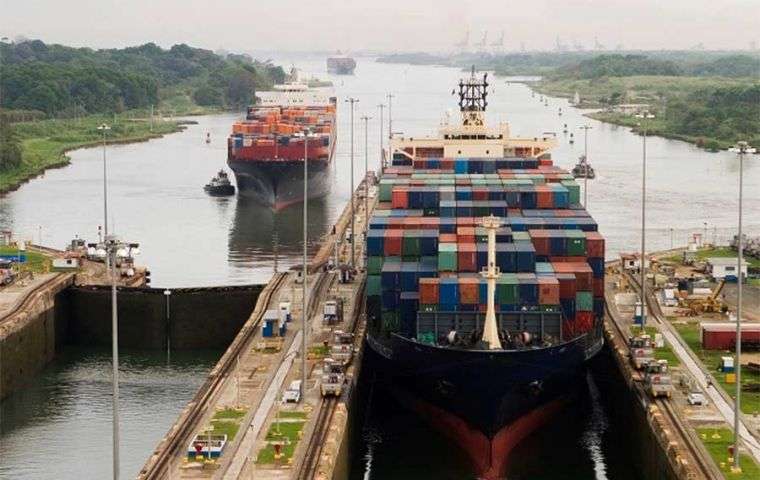Trump Alleges Panama Canal Overcharges.
Donald Trump’s recent criticisms of the Panama Canal fees and his suggestion of reclaiming control have reignited a historical debate surrounding the waterway’s ownership and management. Trump, via his social media platform, Truth Social, labeled the fees charged to US vessels as “ridiculous” and a “scam,” demanding an immediate halt to this perceived unfair treatment of American businesses and the US Navy. He invoked the 1977 Torrijos-Carter Treaties, which facilitated the handover of the canal to Panama in 1999, as a “foolish” decision by then-President Jimmy Carter. Trump’s contention is that the canal was entrusted to Panama for management, not for imposing exorbitant fees on the United States. He further expressed concerns over China’s growing influence near the canal, asserting that this could negatively impact US businesses reliant on the crucial trade route connecting the Atlantic and Pacific oceans.
The Panama Canal, completed in 1914 by the United States, represents a significant feat of engineering and a vital artery for global commerce. Trump’s pronouncements overlook the historical context surrounding the canal’s construction and the subsequent transfer of control. The original construction was marked by complex negotiations and agreements with Panama, which granted the US the rights to build, operate, and control the Canal Zone. However, Panamanian sovereignty over the zone was never fully relinquished, leading to ongoing tensions and calls for greater control. The Torrijos-Carter Treaties, while controversial at the time, aimed to address these historical grievances and normalize relations between the two countries. The treaties established a timetable for the complete handover of the canal to Panama, culminating in the transfer on December 31, 1999.
China’s involvement in Panama, while a legitimate concern for the United States, doesn’t equate to direct control of the canal. While Chinese companies operate ports near the canal and have invested heavily in Panamanian infrastructure projects as part of China’s Belt and Road Initiative, the Panama Canal Authority (ACP), a Panamanian government agency, retains full control and management of the waterway. The 1977 treaty mandates that Panama maintain the canal’s neutrality, ensuring access for all nations. While China’s economic influence in the region is undeniable, the narrative of China controlling the canal appears to be an exaggeration.
Trump’s assertion that the canal handover was a financial misstep, implying a “one dollar” sale, is also a misrepresentation. The treaties were complex, involving phased transfer of control, joint operation periods, and payments to Panama based on canal usage and revenues, not a simple one-dollar transaction. The canal’s significance to global trade is undeniable, with about 5% of world maritime traffic passing through it, significantly reducing travel times and risks compared to navigating the perilous Cape Horn route. This highlights the economic importance of the canal for various nations, not just the United States.
The potential repercussions of a US takeover of the Panama Canal, as suggested by Trump, are substantial and far-reaching. Such a move would undoubtedly strain US-Panama relations, potentially destabilizing the region and undermining international law. It could also trigger a backlash from other nations reliant on the canal, escalating geopolitical tensions. While Trump frames his concerns within the context of protecting US economic interests, the actual ramifications of such an action could have unintended negative consequences.
While Trump’s comments raise valid points about fair pricing and ensuring continued US access to the canal, they also oversimplify the complexities surrounding the waterway’s management and China’s involvement. The suggestion of reclaiming control, rooted in a mischaracterization of the historical handover and potentially fueled by political posturing, presents a serious risk to international relations and the stability of global trade. A more constructive approach would involve diplomatic negotiations and collaboration with Panama to address concerns regarding fees and ensure the canal remains a neutral and efficiently operated passage for all nations.
Share this content:












Post Comment